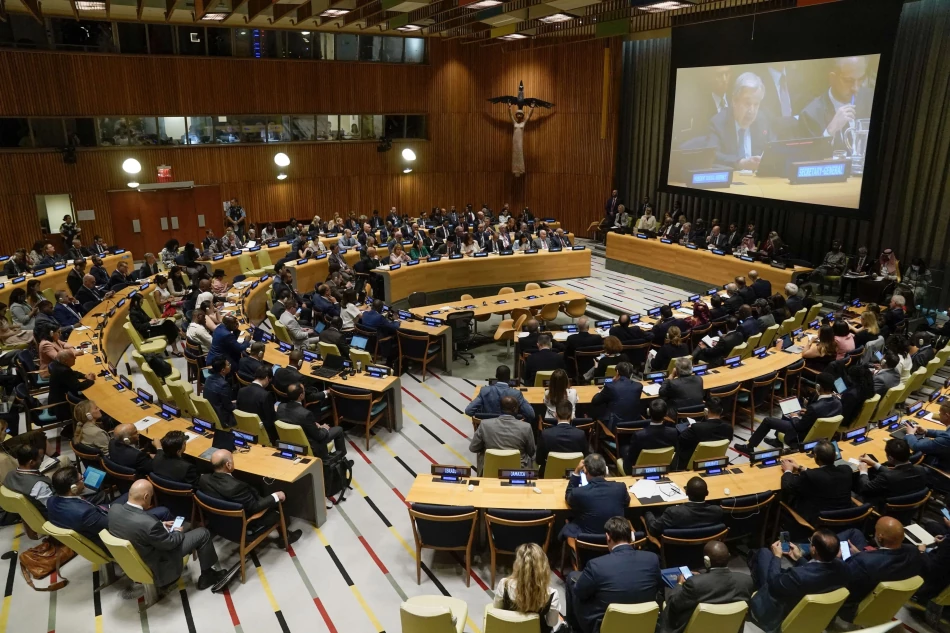
Saudi-French Leadership Hosts UN Conference to Revive Two-State Solution
UN Chief Warns Two-State Solution at "Breaking Point" as Saudi-France Conference Seeks Gaza Breakthrough
UN Secretary-General António Guterres delivered a stark warning that the Israeli-Palestinian two-state solution has reached a "breaking point" as a high-level international conference opened Monday at UN headquarters in New York. Co-chaired by Saudi Arabia and France, the two-day gathering represents one of the most significant diplomatic pushes for Palestinian statehood since the October 7 attacks and subsequent Gaza war reshaped Middle East dynamics.
A Diplomatic Gamble at a Critical Moment
The timing of this conference is no accident. With over 120 officials and delegates participating, the Saudi-French initiative comes as traditional peace frameworks appear increasingly obsolete. Guterres emphasized that the two-state solution—long considered the only viable path to lasting peace—is now "further away than ever before."
The UN chief's unusually blunt language signals growing international frustration with decades of failed negotiations. His call for this to be a "decisive turning point" rather than "another exercise in well-intentioned rhetoric" reflects mounting pressure on global leaders to move beyond symbolic gestures toward concrete action.
Saudi Arabia's Strategic Pivot
Saudi Arabia's co-leadership of this conference marks a significant diplomatic shift. The kingdom, which had been moving toward normalization with Israel through the Abraham Accords framework, now finds itself at the forefront of Palestinian advocacy. This positioning serves multiple strategic purposes: it reinforces Saudi Arabia's claim to regional leadership, appeals to domestic and regional public opinion, and potentially creates leverage for future negotiations.
The Saudi involvement also suggests that Gulf states view Palestinian statehood as a prerequisite for broader regional integration—a departure from the Trump-era approach that sought to sideline Palestinian concerns.
France's European Leadership Bid
France's co-chairmanship reflects President Emmanuel Macron's broader effort to position Europe as an independent diplomatic force, distinct from traditional U.S. mediation. This follows France's recent recognition of Palestinian statehood alongside several European partners, signaling a coordinated European approach that diverges from Washington's more cautious stance.
The Reality Check: Why This Time May Be Different
Guterres's emphasis on the 1967 borders and shared Jerusalem as capitals for both states represents a return to internationally recognized parameters that have been eroded by settlement expansion and changing facts on the ground. His condemnation of what he termed "creeping annexation" of the West Bank directly challenges Israeli policy and signals potential consequences for continued unilateral actions.
The conference's focus on humanitarian aid and reconstruction for Gaza acknowledges that any political solution must address the immediate crisis facing 2.3 million Palestinians in the devastated territory. This practical approach may prove more effective than previous initiatives that focused primarily on high-level political agreements.
Market and Regional Implications
The conference's outcomes could significantly impact regional stability and investment flows. A credible path toward Palestinian statehood might accelerate normalization between Israel and Arab states, potentially unlocking billions in trade and investment. Conversely, continued deadlock risks further regional polarization and security challenges that could affect energy markets and global supply chains.
For Israel, international pressure for a two-state solution comes at a time when domestic politics have shifted rightward, creating a potential collision between international expectations and domestic constraints. The sustainability of current policies faces increasing scrutiny from traditional allies, including European partners crucial for trade and technology cooperation.
The Path Forward
The conference's three discussion sessions on humanitarian aid, reconstruction, and political frameworks suggest a comprehensive approach that addresses immediate needs while building toward longer-term solutions. However, success will ultimately depend on whether major powers—particularly the United States—are willing to move beyond rhetorical support toward concrete diplomatic and economic pressure.
The involvement of over 120 officials indicates broad international engagement, but the absence of direct Israeli and Palestinian leadership participation may limit immediate breakthroughs. The real test will be whether this gathering can generate sufficient momentum to influence policy in Washington, Tel Aviv, and Ramallah—the capitals where ultimate decisions will be made.
Most Viewed News

 Sara Khaled
Sara Khaled






